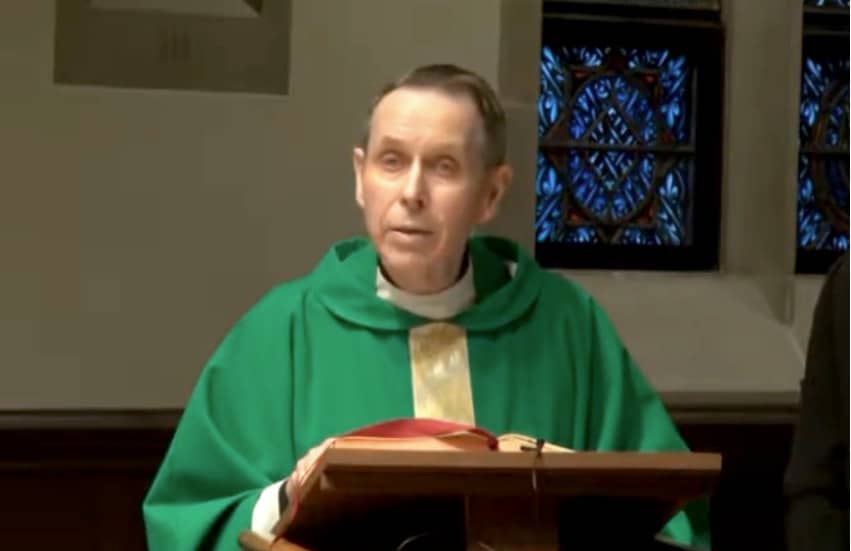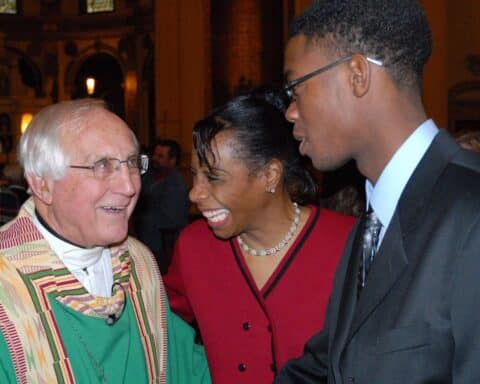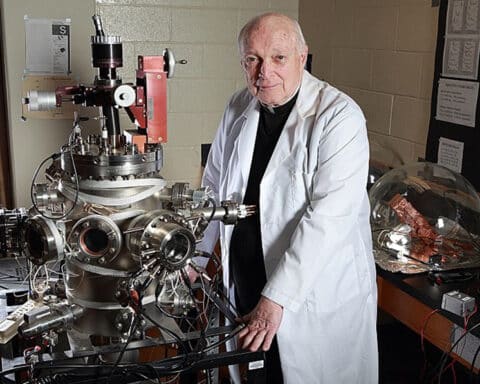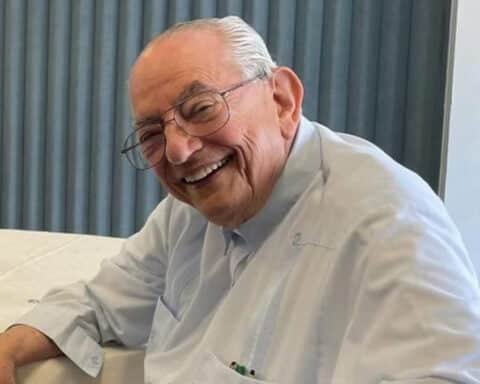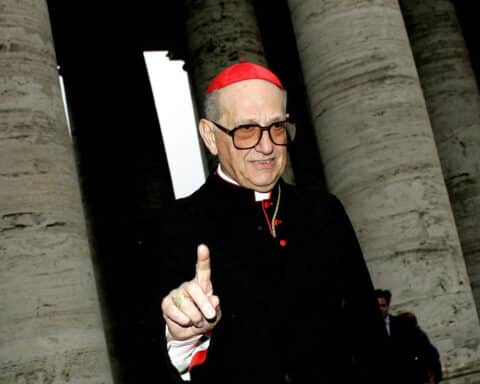On Oct. 19, Father John P. Meier, priest of the Archdiocese of New York and the William K. Warren Professor of Theology, Emeritus, at the University of Notre Dame, passed from this life at the age of 80. For the last several years of his life, he had struggled with various health problems.
A native of the Bronx, Father Meier graduated from St. Joseph’s College Seminary, Dunwoodie, in 1964. From there, he was sent on to study theology at the Gregorian University in Rome, where he was ordained a priest in St. Peter’s Basilica in 1967 before completing his S.T.L. degree summa cum laude the following year, with an award-winning thesis. Specializing then in biblical studies, Father Meier ultimately earned his doctorate (S.S.D.) at the Pontifical Biblical Institute in 1976, with a dissertation written under Maximilian Zerwick on Tradition and Redaction in Matthew’s Gospel, again honored summa cum laude and again winning a gold medal. A long career of teaching followed, with 12 years spent working as a professor back at St. Joseph’s in New York and 14 years at The Catholic University of America in Washington, D.C., before arriving at Notre Dame in 1999, where he remained until his death. Active in professional guilds, especially the Catholic Biblical Association of America, for which he served as general editor of the association’s journal (1985-88) and later as president (1990-91) and a member of the Board of Trustees (2009-12), in his final decades of work in South Bend, Father Meier concentrated increasingly on focused research, whence he gained international recognition for his monumental publications on the historical Jesus. Father Meier was made an honorary prelate of the Papal Household (monsignor) by Pope St. John Paul II in 1994.
Father Meier will be remembered by his students for his congenial demeanor and a practiced wit in the classroom, for his shrewd ability to consider and weigh multiple sides of a question and for his garish New York accent, which neither Italy nor Indiana could efface. It was above all his remarkable mastery of Gospel traditions, however, along with his meticulous, methodological care, that made a formative impression on those who studied with him. Although an intense focus on his own immense research project often kept him occupied, it did not prevent his serving as a fine mentor for students nor occlude his more sociable and collegial side. Pastorally, he was widely appreciated as a fine preacher on the university campus.
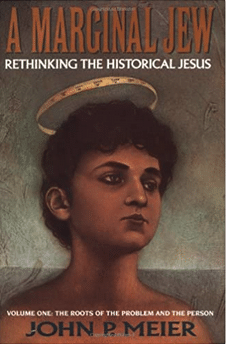 Beyond the circles of those whom he knew and reached, Father Meier’s legacy will clearly rest with his magnum opus, “A Marginal Jew.” This imposing life’s work was originally born of a small entry composed for the New Jerome Biblical Commentary in 1990, but it quickly burst all bounds and grew to be an encyclopedic statement. A monument of scholarship, it is the standard bearer and essential reference for the so-called “Third Quest for the Historical Jesus,” rightly cited by Pope Benedict as a sort of mature measure of what the classical historical-critical project can say about Jesus when playing by its own chosen rules. If the lowest-common-denominator limits of a consensus approach are clear, the “unpapal conclave” of Father Meier’s imagination (where Catholics, Protestants, Jews and atheists are all locked up in a room and forced to agree about Jesus) was his effort to bring order to a welter of conflicting claims. So, he meant to present a Jesus of Nazareth whom the whole world could agree on. Father Meier himself once confessed to me over dinner (he was an informed connoisseur of wine, by the way) that he considered himself a “Thomist” — by which, I think, he meant to say that he was unimpressed by post-modernism’s dabbling with post-truth perspectives. He had a refreshingly old-fashioned confidence in human reason and what it could convincingly say about Jesus, apart from the Faith.
Beyond the circles of those whom he knew and reached, Father Meier’s legacy will clearly rest with his magnum opus, “A Marginal Jew.” This imposing life’s work was originally born of a small entry composed for the New Jerome Biblical Commentary in 1990, but it quickly burst all bounds and grew to be an encyclopedic statement. A monument of scholarship, it is the standard bearer and essential reference for the so-called “Third Quest for the Historical Jesus,” rightly cited by Pope Benedict as a sort of mature measure of what the classical historical-critical project can say about Jesus when playing by its own chosen rules. If the lowest-common-denominator limits of a consensus approach are clear, the “unpapal conclave” of Father Meier’s imagination (where Catholics, Protestants, Jews and atheists are all locked up in a room and forced to agree about Jesus) was his effort to bring order to a welter of conflicting claims. So, he meant to present a Jesus of Nazareth whom the whole world could agree on. Father Meier himself once confessed to me over dinner (he was an informed connoisseur of wine, by the way) that he considered himself a “Thomist” — by which, I think, he meant to say that he was unimpressed by post-modernism’s dabbling with post-truth perspectives. He had a refreshingly old-fashioned confidence in human reason and what it could convincingly say about Jesus, apart from the Faith.
For several years before his passing, Father Meier had quietly asked for prayers that God would give him the strength to complete the sixth and final projected volume of “A Marginal Jew.” It was to handle some of the hardest material, including Jesus’ death — but not the Resurrection, which was a matter for faith. If, in God’s providence, the end of his project — like the consensus he also sought — finally eluded the reach of Father Meier’s reasoning labors, we may be grateful for the enormous amount that he accomplished and taught. We pray that he might now receive one final award of highest praise for his work, beholding with eyes unveiled all the truths that he left unwritten, rejoicing as one inscribed in the book of life.
Father Anthony Giambrone, OP, is a Dominican priest of the Province of Saint Joseph and professor of the New Testament at the École biblique de Jérusalem.

